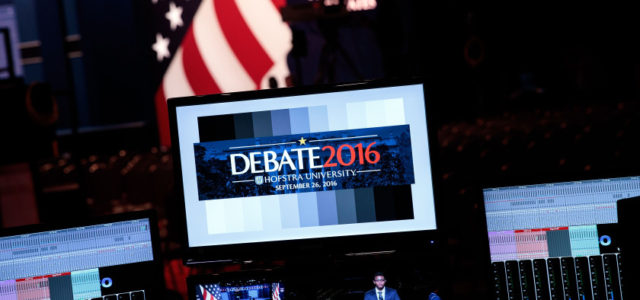
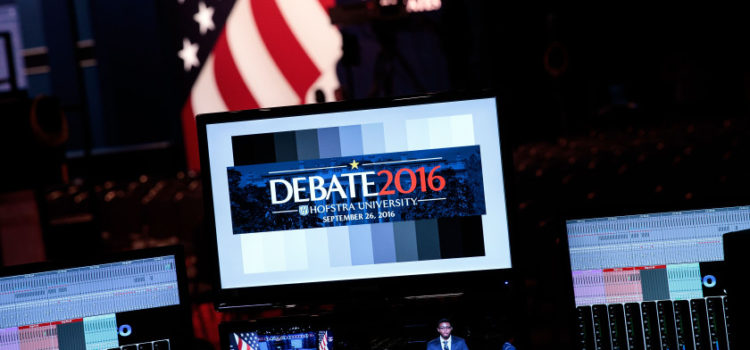

Both shit and gold must be weighted on the same scale
DEBATE IS IMPORTANT
“When I was a child, I spoke as a child, I understood as a child, I thought as a child: but when I became a man, I put away childish things.” —
1 Corinthians 13
The majority of disagreements on this planet are because we lack shared information and empathy. Healthy debates are a structured way to exchange information. Why are people in the Caribbean and Africa not concerned with the Queen of UK’s death? Why is race in Ancient Egypt so polarized? It is through a proper exchange that we share a broader pool of knowledge and then we can empathize with different points of view. Not always, but most disagreements come about due to ignorance and irrational positions. Sometimes people fundamentally agree, but get lost in their own fog of bad debating and end up thinking they disagree with each other.
Exchanges between people can be high-resolution or low resolution. A low-resolution discussion is foggy and vague, very non-specific, relies heavily on wishy-washy statements, sweeping generalisations, dubious claims, statements that are moot, on and on. It is like you ordered fish and chips and there is no fish only batter. It looks like fish and chips but has no substances.
We live in a world where beliefs having an uninformed opinion qualifies them to speak, and speak loud. But how do we know what is what when freedom of speech is all around us. Because more than any time in human history, we have the ability to express to a larger public, outside our block our opinions. Now to have an opinion one must prepare to have that opinion challenged. And the art of challenge is a method of verification of the veracity of the quality of the opinion offered. And it is very important for the development of a society where laws, ethics, and attitudes determine the quality of life and our very humanity. If the opinion that slavery is okay is put forward, it is our human duty to counter it on an intellectual level. We must, therefore, be very serious about how we treat information for the health of a society. Our advancement is tied to having quality debates to determine which course of action is best.
Not only should you and the person you are debating understand the rules of the debate, but every single person listening in should also. When one plays chess you all agree to the same rules. My pawn can move one step, and your pawn can move one step. It would not be much of a game if your pawn moved like a queen and your king moved like a rook. And that is how a debate must be conducted.
“Trying to argue with a man who has forgone the use of reason is like giving medicine to a dead man” – Thomas Paine
How do you know which product to buy, how do you know if renting is better than owning, how do you know who to vote for, how do you know if you should be a Pan-Africanist, or if the capitalist model should apply to health care? How do you know that apartheid is wrong in Israel and SA? How do you know if Whites stole our land? Do we really deserve reparations, on and on. It comes down to the presentation of information/arguments.
Principled, informed arguments are a sign of intellectual health and vitality in a democracy.
Nichols, Tom. The Death of Expertise
IS IT A DEBATE?
If a discussion is just throwing names at each other for the opinions we offer then it is not really a discussion is it? Two people read a book or watched a film or study from the same literary body of work: They are having a debate when they are discussing that material. It is not a debate when one interlocutor is studied and the other is feeding off of memes. Then why engage in an exchange that has no benefits? To teach maybe? But if the persons mental conditioning is sub-par all you will do is feed your
Do you know how to present an argument? Well if you are like 99% of the planet that means no you do not. What people consider a debate is really just a battle of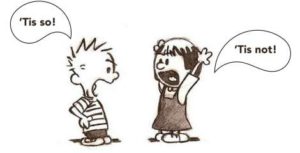 opinions. For example, you say 9/11 was a hoax and someone replies, “I cannot believe you believe that nonsense”. or someone says “The ancient Egyptians were African people” and someone replies “No they were not black”. The responses are not counterarguments.
opinions. For example, you say 9/11 was a hoax and someone replies, “I cannot believe you believe that nonsense”. or someone says “The ancient Egyptians were African people” and someone replies “No they were not black”. The responses are not counterarguments.
They are counter-opinions. If someone said “I believe in God” and you said “You believe in invisible make-believe people” you have not discredited either my belief or my statement: You just offered yours. It is not a debate because nothing has been offered in way of a constructive discussion. And this is all people on YouTube and social media are doing when they engage with each other. Rather pointless because a debate is an exchange of information, a critique of points and assumptions, and a challenge of facts and how they are used. And very few people get even remotely close.
Clarity is needed on what is a valid debate or else we would waste resources discussing non-issues. Someone makes a statement “Africa lacks final good products” and someone replies “Do not lump everyone into that basket.” or uses an ad hominem “why are you belittling Africa?” Have they offered anything? No. Because for the first response without generalizations, there would be no evidence-based practice: A generalization is an act of reasoning that involves drawing broad conclusions from particular instances—that is, making an inference about the unobserved based on the observed. 1)Generalization in quantitative and qualitative research: Myths and strategies, Denise F. Polit a,b,
*, Cheryl Tatano Beck So pointing to established techniques used to make generalizations is not a contribution to a discussion. A counter would be to suggest how the generalization is invalid. No statement can be burdened by having to account for every single caveat and outlier fact!
YOU NEED TO DO MORE RESEARCH
And that is what many people mean when they say “you need to do more research” do not stop after 20 books of reading. Stop when you eventually agree with them. This thought-terminating-clique cannot add to any debate because they are not specific.
EXAMPLE
small experience, BIG conclusion
Let me be random: This is why America could go to war against people who did nothing to them while more than 50% of America thought the argument for doing so was valid. There was no argument for the war. There is no argument for 90% of the things Trump does beyond megalomania.
PETERSON VS DYSON

Despite my own beliefs and leanings, I am prepared to accept when someone whom I might not agree with or get along with or even like makes a better point. That is a signal to review what I believe and come harder. I watched an old debate between Michael Eric Dyson and Jordan Peterson and one exchange above all stood out where Peterson said Identity politics is a problem because there is no group responsibility or some crap like that. Dyson schooled him and asked him so does he have a problem with being Canadian? Is that not a form of identity politics also? What Peterson was asking Dyson was to quantify how much his White privilege contributed to his success, clearly, Peterson is ignorant of what White privilege is. But Dyson schooled him. It made no difference to Peterson fans because they said: “Dyson was making no sense” and was using way too many big words. A transcript of the discussion shows he was speaking like most African American academics speak (a mixture of formal English and Ebonics). So I guess it is a case of racism against Dyson’s culture for failing to speak as his White Interlocutor did. Stephen Fry (who was also there) because he was calm was the Yoda of the debate. Not much comment on what he actually said, apart from a sly referring to Snake oil. Well, anyone can name call— But not Dyson. The problem with namecalling is it does nothing for any debate. While Dyson held his cool, Peterson was totally shaken from the experience. I guess he is so angry and means he could not pick up he was being toyed with like a cat toy with a mouse.
I am no fan of Dyson but he is correct. You see it is good for them to use identity politics to conquer us but when we want to do it all of a sudden it is a form of immaturity. But despite Dyson having the better arguments I have seen black people tear into him because he called Jordan Peterson a Mean Angry white man (b/c he is). Besides that, they said Dyson talks like an intellectual (b/c he is). Oh, I do not like his vibe, he comes across as showing off. What the hell does that have to do with the debate? Because I have a major issue with that kind of criticism because it is not constructive criticism. It is downright STUPID! So If I am a pompous prick, and I speak the truth based on presenting good arguments and my interlocutor is cool and talks like a rapper but talks pure crap do you side with the guy who is wrong because he is cool? Childish.
THE PASTORS TRICK

BUT I AM RIGHT
Being right has no place in a debate. A debate is not about who is morally right vs who is clearly morally wrong. Both immoral and moral people in a debate have the same exact challenges.
ADD SOMETHING TO THE DEBATE
|
|
CRITERIA OF CRITIQUE
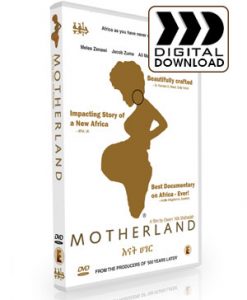
BUT Enat Hager (Click)
Can criticism be vague and nonspecific? No. Can I say “your article on race failed to represent African in the 21st century”, well that makes no sense! ( so criticism must make valid points, even if we debate them). Can you say “You talking rubbish” no, it offers us no based for any rebuttal or deeper inquiry. Can I review a film like Motherland (2010 film) and say “It did not represent all African people” (that is stupid, what 2 hr film can do that? and which film has done that? so it is an unfair and creates the impossible threshold of having to represent ALL African people, but that is not what the film was about). Which book can be a total representation of any topic? So these are not serious observations and we must train ourselves to understand this or we might be distracted by what is really people vex by truths they cannot deal with. It is the same with accusations of bias, or racist, it is easy to do and requires no formal proof. You can just say “The author is polemic”, but when you have a documentary film with broad representation, with many voices, how can you say it is polemic? Again these are not serious criticisms.
The real issue is you probably hit the nail on the head and they just angry. Next they will find two grammatical errors to prove your work is flawed. As if truth and grammar are synonymous.
EXAMPLE 1
A bad argument from someone who is semi-literate and a bad argument from someone with an Oxford Education is still a bad argument. Contrary to popular belief, well-formed sentences with fancy word usage do nothing to help an argument. Not even grammar count on the scorecard of any good debate. You see some of you get confused by their usage of fancy words which just obfuscate and make drivel-driven nonsense look intelligent. Nonsense is nonsense no matter how you string a sentence together.
- AHS: South Africa, like most of Africa has made very little progress in the area of African ownership. Africans still have a country that is heavily dependent upon White and Indian skills for it economic prosperity.
- REPLY: African Holocaust, am afraid you are parroting the white supremacists’ narrative of denigration of Africans and selective amnesia of regurgitated half-facts. I will recommend you do better research and maybe compare and contrast developmental benchmarks set by UN organizations between Botswana and South Africa then maybe you will post facts not unsubstantiated opinions.
Now you have noticed that despite the usage of fancy words, this person has not countered the statement, they have not disproved it, they have done nothing. The facts in AHS statement are not unsubstantiated, and if they are the person replying has not shown that they are contested facts. What the UN (A Eurocentric org ) sets for African development is irrelevant information. 1. We do not judge reality by these Eurocentric goals, 2. They have no bearing on the reality of the statement. Native African ownership in South Africa is not disputed anywhere by anyone–Not even the SA government. What is written as a reply is empty of a challenge to the statement being made. The point about “doing more research” is just a highfalutin (big word) ways of saying “You don’t know anything.” The entire “refutation” is a garbled rant devoid of the merits of a debate.
And here is the final test:
- NEW STATEMENT: Enclaves like Sandton are apartheid’s unchallenged bastions, from which 5% of the population control 88% of the nation’s wealth. This grotesque imbalance of power has not changed and is not likely to. They, not the majority, have been rewarded by democracy and “reconciliation”. Pilger
- 2)https://www.greenleft.org.au/content/john-pilger-south-africa-has-anc-sold-out Pilger:John Pilger on South Africa: has the ANC sold out?
- REPLY: African Holocaust, am afraid you are parroting the white supremacist’s narrative of denigration of Africans and selective amnesia of regurgitated half-facts. I will recommend you do better research and maybe compare and contrast developmental benchmarks set by UN organizations between Botswana and South Africa then maybe you will post facts not unsubstantiated opinions.
Let us do it again
- In the history of civil rights, South Africa lays claim to a momentous achievement — the demolition of apartheid and the construction of a democracy. But for black South Africans, who account for three-fourths of this nation of roughly 55 million people, political liberation has yet to translate into broad material gains. New York Times 3)https://www.nytimes.com/2017/10/24/business/south-africa-economy-apartheid.html End of Apartheid in South Africa? Not in Economic Terms
- REPLY: African Holocaust, am afraid you are parroting the white supremacists narrative of denigration of Africans and selective amnesia of regurgitated half- facts. I will recommend you do better research and may be compare and contrast developmental benchmarks set by UN organizations between Botswana and South Africa then maybe you will post facts not unsubstantiated opinions.
The argument is so vague, you can copy and paste it to any statement ever made. It brings nothing to the debate, it is an unjustified tirade.
Let us do it one more time:
- Africa is a very good holiday destination but certain places have a better history for Diaspora tourists such as The Gambia and Ghana.
- REPLY: I am afraid you are parroting the white supremacist’s narrative of denigration of Africans and selective amnesia of regurgitated half-facts. I will recommend you do better research then maybe you will post facts not unsubstantiated opinions.
YOU ARE BIASED
GRAHAM
Paul Graham, a computer specialist, came up with a wonderful hierarchy of disagreement which structures different ways people respond to a position. Below is
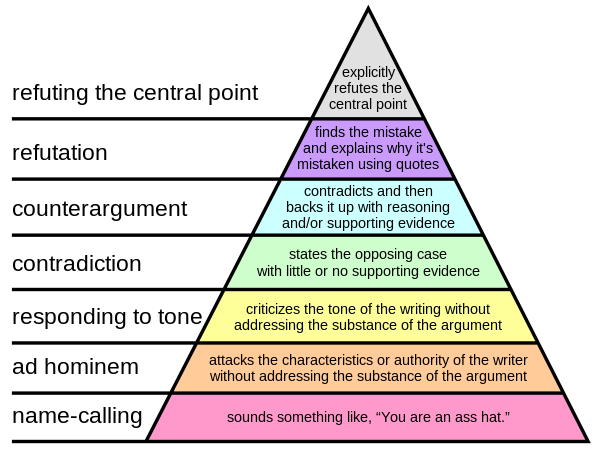
Level of Disagreement
DH0. Name-calling.
This is the lowest form of disagreement, and probably also the most common. We’ve all seen comments like this:
u r an idiot, you do not know what you are talking about!!!!!!!!!!
But it’s important to realize that more articulate name-calling has just as little weight. A comment like
The author is a self-important dilettante.
is really nothing more than a pretentious version of “u r an idiot, you do not know what you are talking about.”
DH1. Ad Hominem.
An ad hominem attack is not quite as weak as mere name-calling. It might actually carry some weight. For example, if a senator wrote an article saying senators’ salaries should be increased, one could respond:
Of course he would say that. He’s a senator.
This wouldn’t refute the author’s argument, but it may at least be relevant to the case. It’s still a very weak form of disagreement, though. If there’s something wrong with the senator’s argument, you should say what it is; and if there isn’t, what difference does it make that he’s a senator?
Saying that an author lacks the authority to write about a topic is a variant of ad hominem—and a particularly useless sort, because good ideas often come from outsiders. The question is whether the author is correct or not. If his lack of authority caused him to make mistakes, point those out. And if it didn’t, it’s not a problem.
DH2. Responding to Tone.
The next level up we start to see responses to the writing, rather than the writer. The lowest form of these is to disagree with the author’s tone. E.g.
I can’t believe the author dismisses intelligent design in such a cavalier fashion.
Though better than attacking the author, this is still a weak form of disagreement. It matters much more whether the author is wrong or right than what his tone is. Especially since tone is so hard to judge. Someone who has a chip on their shoulder about some topic might be offended by a tone that to other readers seemed neutral.
So if the worst thing you can say about something is to criticize its tone, you’re not saying much. Is the author flippant, but correct? Better that than grave and wrong. And if the author is incorrect somewhere, say where.
DH3. Contradiction.
In this stage we finally get responses to what was said, rather than how or by whom. The lowest form of response to an argument is simply to state the opposing case, with little or no supporting evidence.
This is often combined with DH2 statements, as in:
I can’t believe the author dismisses intelligent design in such a cavalier fashion. Intelligent design is a legitimate scientific theory.
Contradiction can sometimes have some weight. Sometimes merely seeing the opposing case stated explicitly is enough to see that it’s right. But usually evidence will help.
DH4. Counterargument.
At level 4 we reach the first form of convincing disagreement: counterargument. Forms up to this point can usually be ignored as proving nothing. Counterargument might prove something. The problem is, it’s hard to say exactly what.
Counterargument is contradiction plus reasoning and/or evidence. When aimed squarely at the original argument, it can be convincing. But unfortunately it’s common for counterarguments to be aimed at something slightly different. More often than not, two people arguing passionately about something are actually arguing about two different things. Sometimes they even agree with one another, but are so caught up in their squabble they don’t realize it.
There could be a legitimate reason for arguing against something slightly different from what the original author said: when you feel they missed the heart of the matter. But when you do that, you should say explicitly you’re doing it.
DH5. Refutation.
The most convincing form of disagreement is refutation. It’s also the rarest, because it’s the most work. Indeed, the disagreement hierarchy forms a kind of pyramid, in the sense that the higher you go the fewer instances you find.
To refute someone you probably have to quote them. You have to find a “smoking gun,” a passage in whatever you disagree with that you feel is mistaken, and then explain why it’s mistaken. If you can’t find an actual quote to disagree with, you may be arguing with a straw man.
While refutation generally entails quoting, quoting doesn’t necessarily imply refutation. Some writers quote parts of things they disagree with to give the appearance of legitimate refutation, then follow with a response as low as DH3 or even DH0.
DH6. Refuting the Central Point.
The force of a refutation depends on what you refute. The most powerful form of disagreement is to refute someone’s central point.
Even as high as DH5 we still sometimes see deliberate dishonesty, as when someone picks out minor points of an argument and refutes those. Sometimes the spirit in which this is done makes it more of a sophisticated form of ad hominem than actual refutation. For example, correcting someone’s grammar, or harping on minor mistakes in names or numbers. Unless the opposing argument actually depends on such things, the only purpose of correcting them is to discredit one’s opponent.
Truly refuting something requires one to refute its central point, or at least one of them. And that means one has to commit explicitly to what the central point is. So a truly effective refutation would look like:
The author’s main point seems to be x. As he says:
<quotation>
But this is wrong for the following reasons…
The quotation you point out as mistaken need not be the actual statement of the author’s main point. It’s enough to refute something it depends upon.
THE PLATFORM
The way we like to approach any discussion is by setting up a platform from which to start the discussion. And this is very important when you are dealing with a very diverse group of people. And the thing about people, normal everyday people, is they are not critical thinkers. So someone that is White generally can see the entire world in spheres of Whiteness, even how they see us is relative to their whiteness. Religious Zealots see only their version of religion in everything. So much so that after telling them you do not believe in their book, they still using it as the bases of their arguments. “But the books says…” Did I just not tell you I do not believe in your book? — Anyway. So for us all debates/discussions must have a purpose and that purpose is part of the foundation we like to set-up before wasting our time discussing something.
References
| ↑1 | Generalization in quantitative and qualitative research: Myths and strategies, Denise F. Polit a,b, *, Cheryl Tatano Beck |
|---|---|
| ↑2 | https://www.greenleft.org.au/content/john-pilger-south-africa-has-anc-sold-out Pilger:John Pilger on South Africa: has the ANC sold out? |
| ↑3 | https://www.nytimes.com/2017/10/24/business/south-africa-economy-apartheid.html End of Apartheid in South Africa? Not in Economic Terms |
































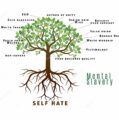





















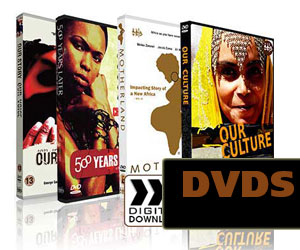






No comments so far.
Be first to leave comment below.